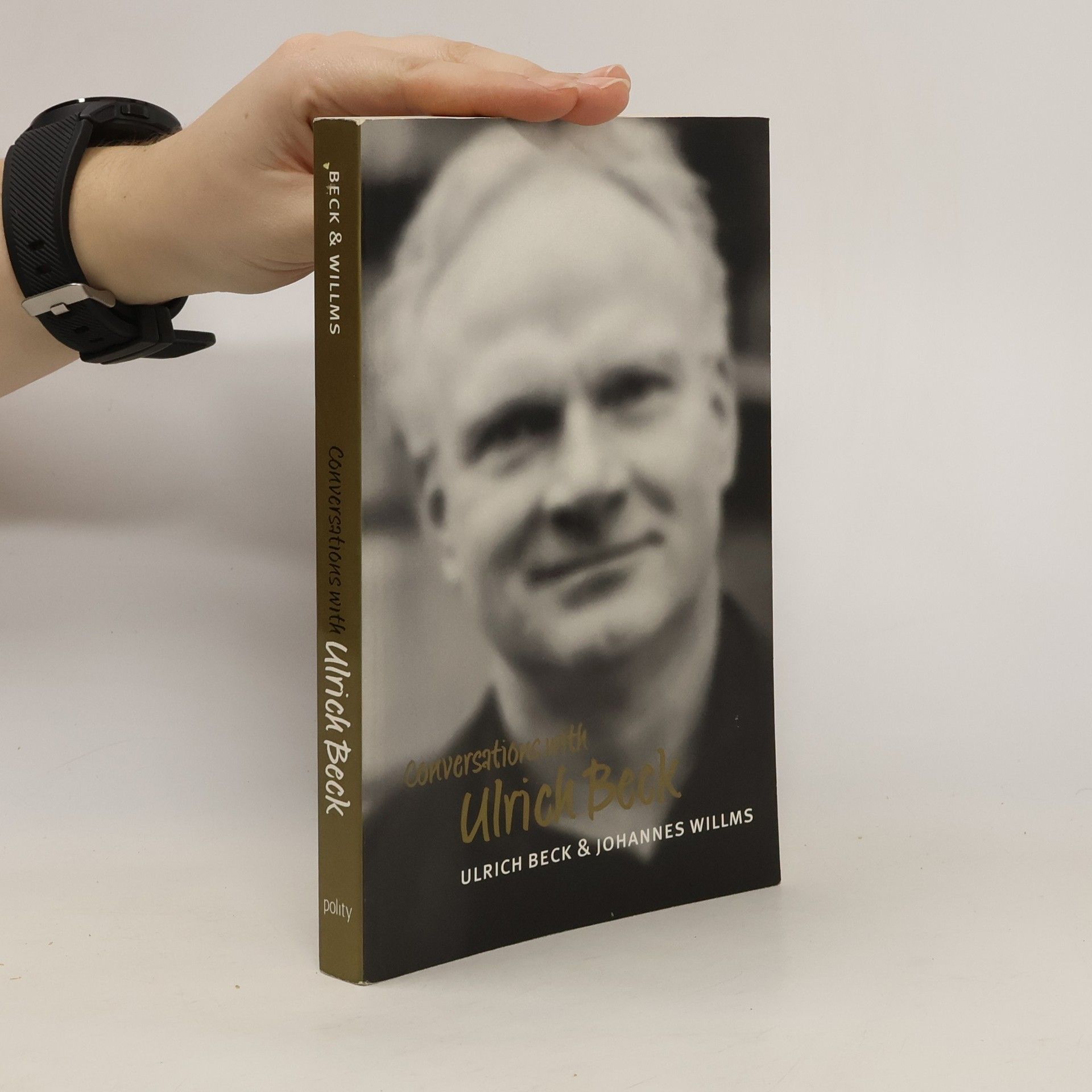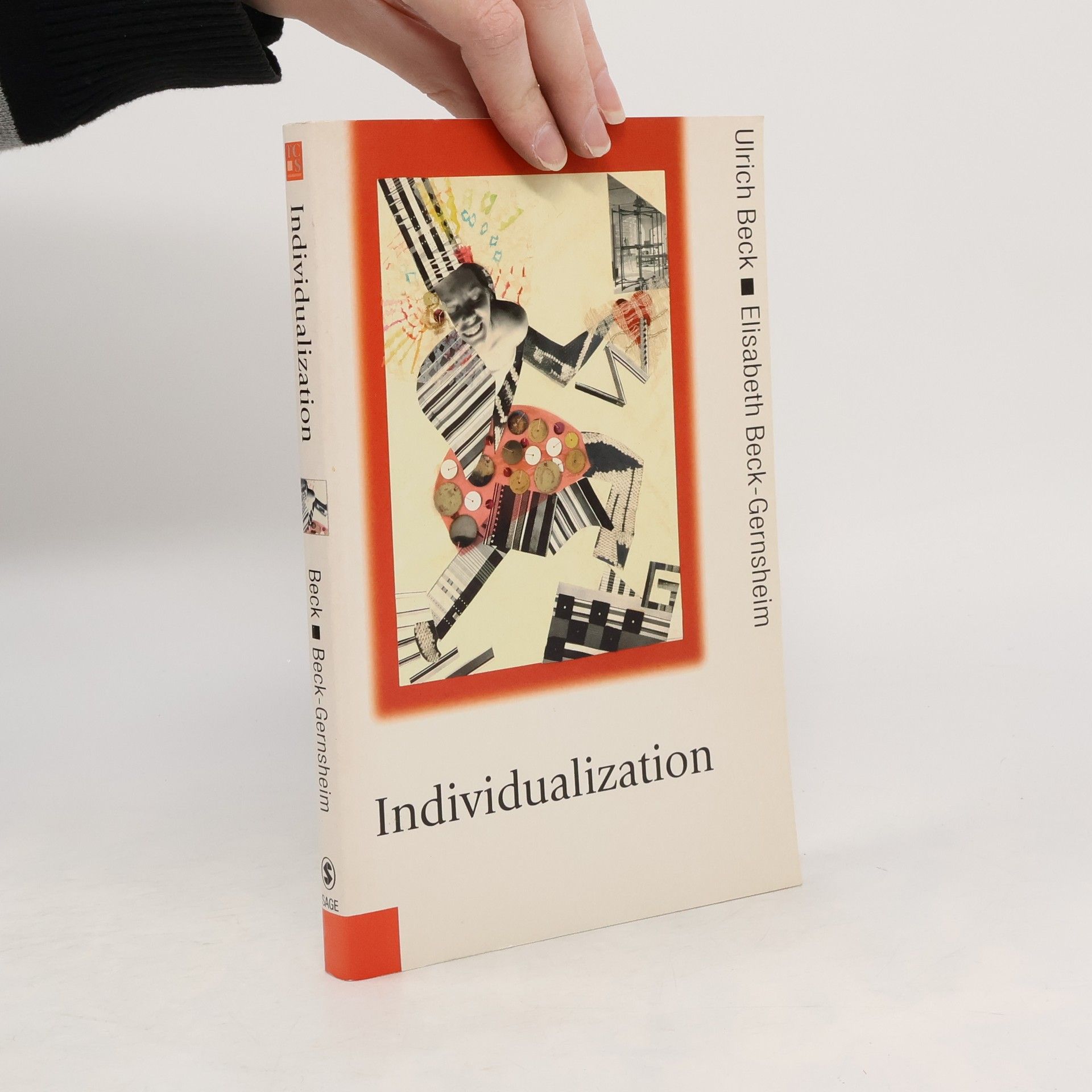asteroidenflirt
- 16 pages
- 1 hour of reading
Anlässlich des 60. Geburtstages von Ulrich Beck eröffnet sein Bändchen »asteroidenflirt« am 5. Februar 2024 die neue Reihe DAS GEDICHT bogen im Anton G. Leitner Verlag.
Ulrich Beck was a German sociologist best known for coining the term 'risk society.' His work delves deeply into modernity, globalization, and the ever-shifting nature of society. Beck's approach often highlighted the uncertainties and challenges inherent in progress, exploring how these factors shape our world. His sociological insights continue to influence discussions on contemporary societal issues.







Anlässlich des 60. Geburtstages von Ulrich Beck eröffnet sein Bändchen »asteroidenflirt« am 5. Februar 2024 die neue Reihe DAS GEDICHT bogen im Anton G. Leitner Verlag.
Als 1986 Risikogesellschaft erschien, machte das Ulrich Beck schlagartig berühmt. Der Soziologe wies nicht nur auf die Nebenfolgen der Industriemoderne hin, er betonte zugleich, dass die Welt sich auch dann permanent verändert, wenn wir meinen, einen vorübergehenden Zustand mit Institutionen und Konzepten einfrieren zu können. Mit beispielloser Neugier spürte Beck den Indizien des Wandels nach und öffnete uns mit der Lust an der terminologischen Innovation die Augen für Individualisierung, Globalisierung und die Transformation der Arbeitswelt. Am 1. Januar 2015 verstarb Ulrich Beck überraschend und viel zu früh. Bis zu seinem Tod arbeitete er an einem Buch, das beides ist: Summe und radikale Weiterführung seiner Theorie. Während es früher Fixpunkte gab, an denen wir erkennen konnten, was stabil blieb und was nicht, erleben wir heute eine allumfassende Verwandlung, die uns orientierungslos werden lässt. Die Metamorphose der Welt ist der Versuch, diese Globalisierung des Wandels zu verstehen und hochaktuelle Herausforderungen wie Erderwärmung und Migration auf den Begriff zu bringen. (Quelle: www.buchhandel.de)
Publikace jedné z hlavních intelektuálních osobností posledních desetiletí se zabývá postupným utvářením nové role Německa v Evropě a problematickým formováním německé Evropy. Věnuje se ohrožení Evropy a krizi politična. Zkoumá přitom německou politiku úsporných opatření, zastaralost současných národních i evropských ekonomických přístupů a potřebu nové evropské koncepce společnosti a politiky. Klade si otázky, co to znamená požadovat více svobody, více sociální jistoty či více demokracie v Evropě.
Autoři analyzují současné „světové rodiny“ a milostné a příbuzenské vztahy mezi lidmi z různých zemí či kontinentů. Tyto vztahy se projevují v různých podobách a vznikají z různých pohnutek, avšak všechny mají společné to, že zhmotňují diference globalizovaného světa. Světová společnost v těchto rodinách vyvolává protikladné pocity, jako jsou neklid, zmatek, radost i pocity selhání a nenávisti. V dnešním světě je často ten nejmilejší vzdálený, zatímco ten vzdálený může být nejbližší. Ulrich Beck a Elisabeth Beck-Gernsheim se zaměřují na lásku překračující geografické, kulturní a politické hranice, včetně sňatkové migrace a mateřské lásky na dálku. V úvodu autoři uvádějí, že prognóza budoucnosti těchto vztahů je nemožná, avšak neřadí se k pesimistům, kteří tvrdí, že vzdálená láska znamená její konec. Přesto nelze pominout deficit lásky v mnoha dimenzích. Věří, že je možné se ptát, zda se v nových formách rodiny a lásky daří umění soužití s hranicemi a navzdory nim.
The euro crisis is fracturing Europe, revealing how the fundamental principles of democracy are being undermined. As the crisis unfolds, parliaments, governments, and EU institutions are being bypassed, leading to a shift from multilateralism to unilateralism, and from equality to hegemony. Even France, once a dominant force in European integration, now finds itself constrained by Berlin's demands due to concerns over its credit rating. This shift has fundamentally altered the power dynamics in Europe, giving rise to a "German Europe." Germany did not actively seek this leadership role; rather, it emerged as an unintended consequence of the euro's creation, which was intended to bind Germany within a more integrated Europe. Instead, the euro has benefitted Germany economically, elevating Chancellor Angela Merkel to a position of informal leadership in Europe. The new power dynamics reflect the divide between creditor and debtor nations, driven by an economic rather than military logic. This situation is rooted in a form of "German euro nationalism," which is reshaping European identity. The current EU model, based on fear of chaos, is unsustainable. For Europe to thrive, it must foster a positive vision that empowers citizens and encourages grassroots engagement, allowing ordinary Europeans to unite and act on their own behalf.
Die Großeltern in Thessaloniki sprechen jeden Abend mit ihrem Enkel in Cambridge – via Skype. Eine US-Amerikanerin ärgert sich über hohe Telefonrechnungen und Reisekosten – denn ihr Mann lebt in der Schweiz. Aus einem europäischen Ehepaar wird ein Elternpaar – mit Hilfe einer indischen Leihmutter. Ulrich Beck und Elisabeth Beck-Gernsheim, die Autoren des Bestsellers »Das ganz normale Chaos der Liebe«, untersuchen in ihrem neuen Buch alle Arten von Fernbeziehungen: Ehen, die Kontinente und Kulturen verbinden, Chatroom-Tragödien, Skype-gestütztem Anstoßen, dem Leben äthiopischer Arbeitsmigranten und von vielen mehr. Ihr Befund: Die Weltgesellschaft hält Einzug in »Normal«-Beziehungen und »Normal«-Familien. Hier treffen die Verschiedenheiten der Sprachen, der Vergangenheiten, der rechtlichen und politischen Ordnungen aufeinander und nehmen Gesichter und Namen an. Und so gelingt im Kleinen mitunter das, woran die große Welt scheitert: das gelungene Zusammenleben über alle Grenzen hinweg.
Zur Transnationalisierung sozialer Ungleichheit
Trotz des Elends der Welt, dessen Bilder jeden Tag in die Wohnzimmer gelangen, enden unsere Gerechtigkeitsvorstellungen in der Regel an der Landesgrenze. Selbst Sozialpolitiker, die für Existenzgeld und Umverteilung eintreten, fordern im selben Atemzug Auffanglager für Flüchtlinge in Nordafrika. Doch mit den Kapital- und Bilderströmen gelangen auch die westlichen Ideale sozialer Gleichheit in alle Winkel der Erde, was absehbar zu neuen Konflikten führen wird. Wir sind daher gut beraten, unsere nationalstaatlich begrenzte Perspektive aufzugeben, um globalen Problemen und den weltweit lauter werdenden Forderungen nach sozialer Teilhabe und der Verwirklichung von Menschenrechten begegnen zu können. Dieser Reader gibt einen detaillierten Einblick in theoretische Konzepte und empirische Studien zu transnationaler sozialer Ungleichheit. Mit Texten von Ulrich Beck, Manuel Castells, David Held, John W. Meyer, Saskia Sassen, Immanuel Wallerstein und vielen anderen.
Das letzte Jahr hat gezeigt, daß die Unterscheidung zwischen Innen- und Außenpolitik ausgedient hat: In Pittsburgh berieten die G20-Staaten über die Finanzkrise, in Kopenhagen rangen die Vereinten Nationen um ein Konzept zur Abwendung des Klimawandels, in London suchte man nach Lösungen für den Konflikt in Afghanistan. In diesem Jahr der verschwimmenden Grenzen hat Ulrich Beck notiert, was im auffiel: in den Medien und in der Wirklichkeit, global und lokal. In seinen Kolumnen, die u. a. in der Frankfurter Rundschau erschienen, bringt er Ordnung ins diskursive Durcheinander. Wir brauchen, so Beck, endliche eine Weltinnenpolitik.
Von der Friedensfähigkeit und dem Gewaltpotential der Religionen
Alle Weltreligionen sehen sich zu Beginn des 21. Jahrhunderts radikalen Transformationen ausgesetzt, alle Weltreligionen ebenso wie alle kulturellen Schöpfungen und Symbole existieren gleichzeitig nebeneinander und stehen meist, herausgelöst aus ihren zeitlichen und räumlichen Kontexten, offen für eine allgemeine Verfügbarkeit, für fundamentalistische oder individuelle Aneignungen. Globalisierung bietet nicht nur die große Chance für die Weltreligionen, sich aus den territorialen Bindungen der Nationalgesellschaft und des Nationalstaates zu lösen und ihre transnationalen Dimensionen, Netzwerke und Imaginationen von „Gemeinschaft“ neu zu entdecken und wiederzubeleben. Zugleich werden auf diese Weise auch wechselseitig die Monopolansprüche in Frage gestellt. Die Weltreligionen sehen sich dazu gezwungen, im grenzenlosen Raum massenmedialisierter Öffentlichkeit und Nachbarschaft miteinander konkurrieren und kommunizieren müssen. Das post-säkulare Zeitalter hat den Modernitätsstreit zwischen Religionen und Säkularismen zu überwinden zugunsten einer Zivilisierung der Zivilisation (die geistliche Einheit des Menschengeschlechts verpflichtet die Bevölkerungen unterschiedlichen Glaubens, einen „gemeinsamen Pfad“ zu finden). Wie steht der Einzelne, als religiöser oder als nicht-religiöser Bürger, wie stehen Christen, Juden und Muslime zum „Geist“ der Weltgesellschaft?